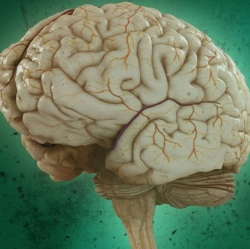
A head injury can lead immune-system brain cells to go on “high alert” and overreact to later immune challenges by becoming excessively inflammatory – a condition linked with depressive complications, a new animal study suggests.
The findings could help explain some of the midlife mental-health issues suffered by individuals who experience multiple concussions as young adults, researchers say. And these depressive symptoms are likely inflammation-related, which means they may not respond to common antidepressants.
An added complication is that aging already increases brain inflammation. So on top of normal aging concerns, people who have had a traumatic brain injury (TBI) experience added inflammation caused by magnified immune responses to so-called “secondary challenges,” such as a second head injury, infections or other stressors.
In mice, these high-alert cells in the brain – called microglia – had an exaggerated response to an immune challenge one month after a moderate brain injury. This increased brain inflammation corresponded with the development of depressive behaviors that were not observed in uninjured mice.
“If we had waited three, six or nine months, the symptoms probably would have gotten even worse,” said lead author Jonathan Godbout, associate professor of neuroscience at The Ohio State University and a researcher in the Institute for Behavioral Medicine Research.
